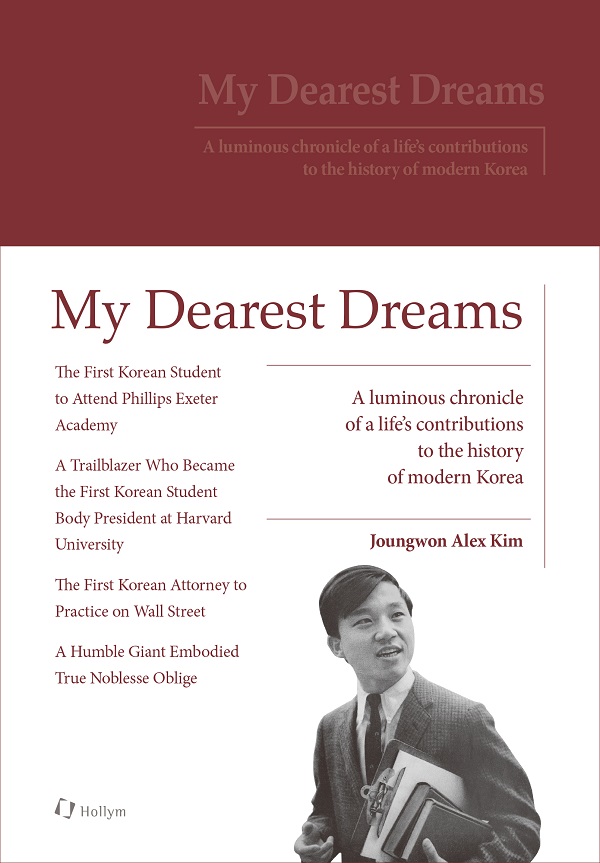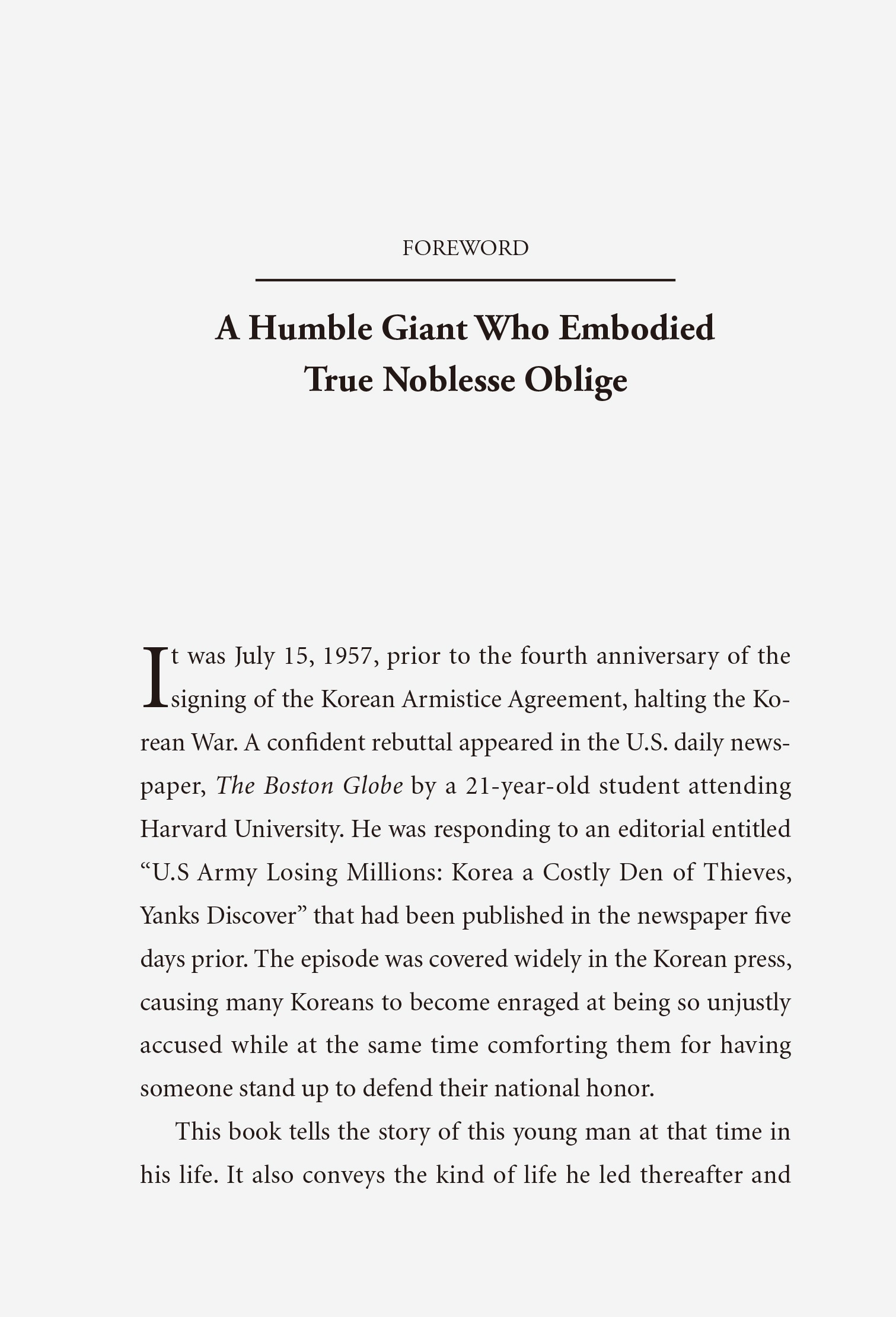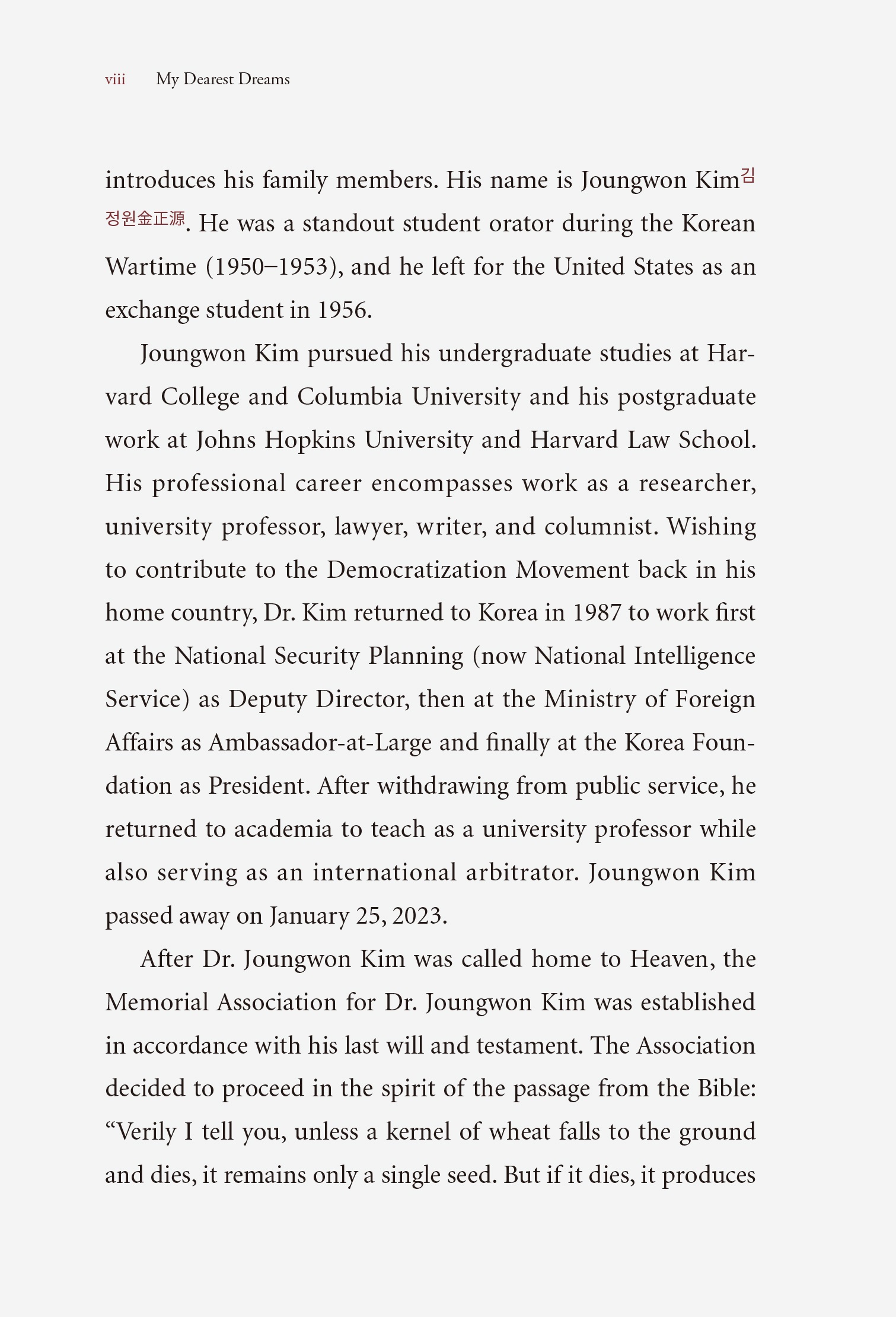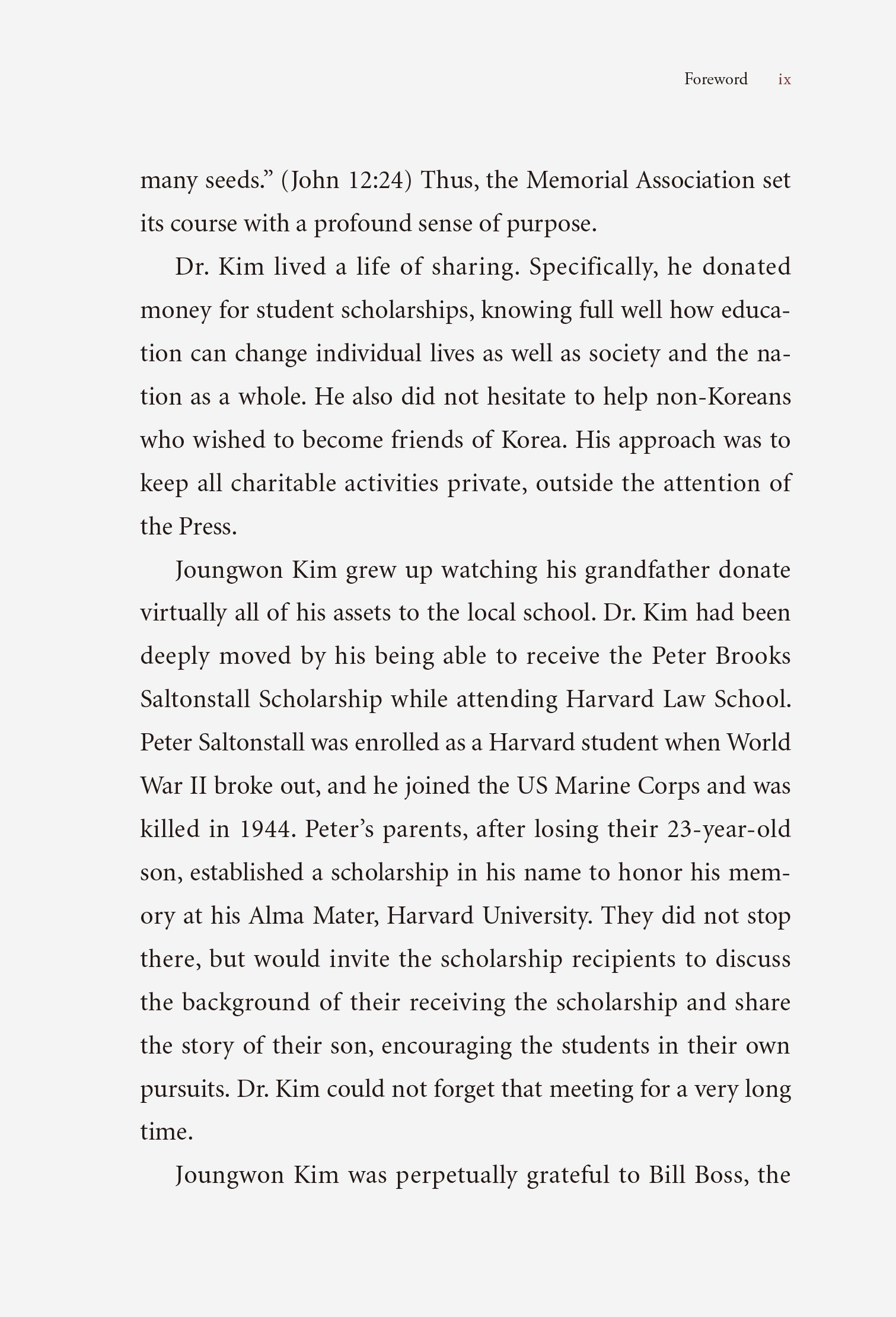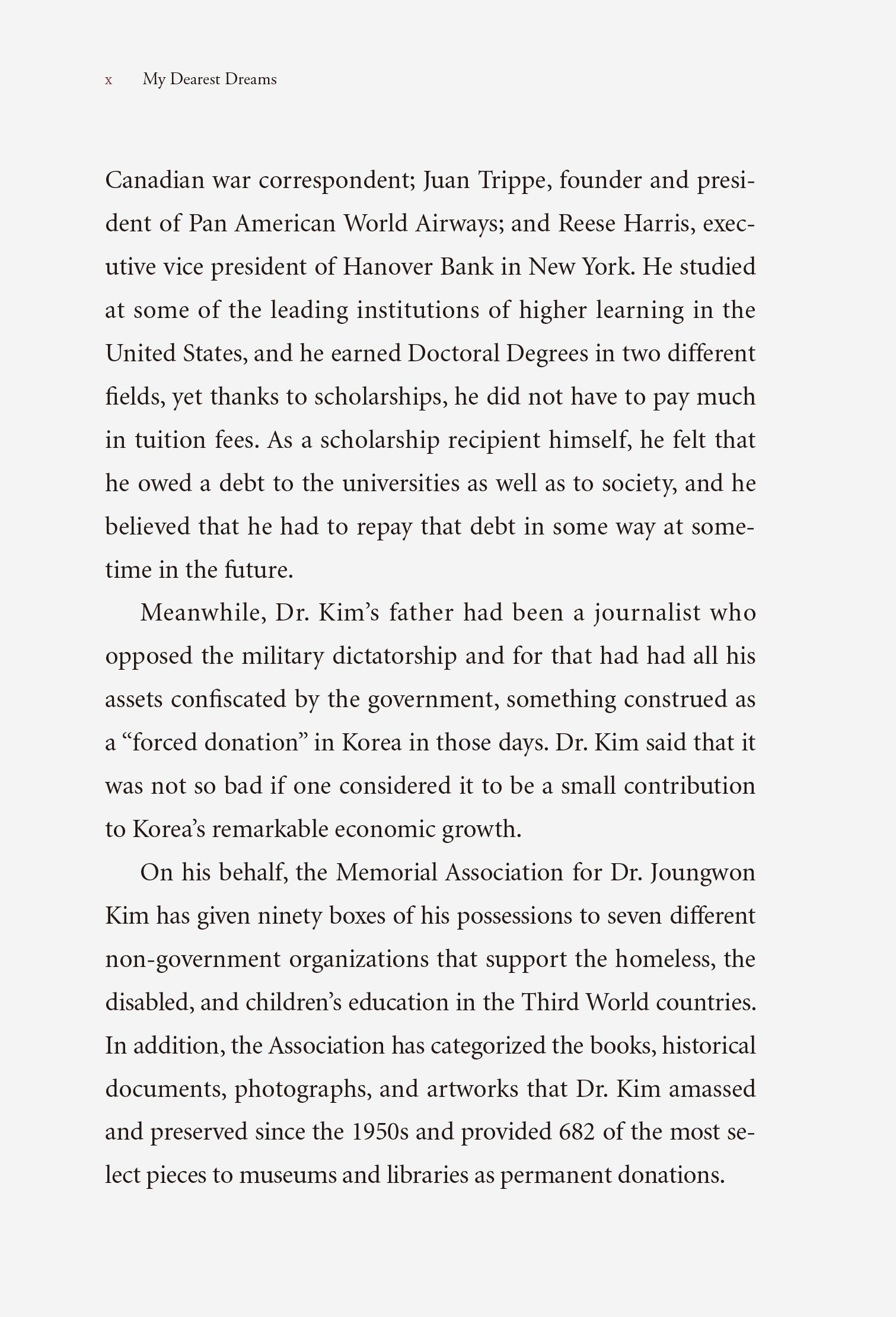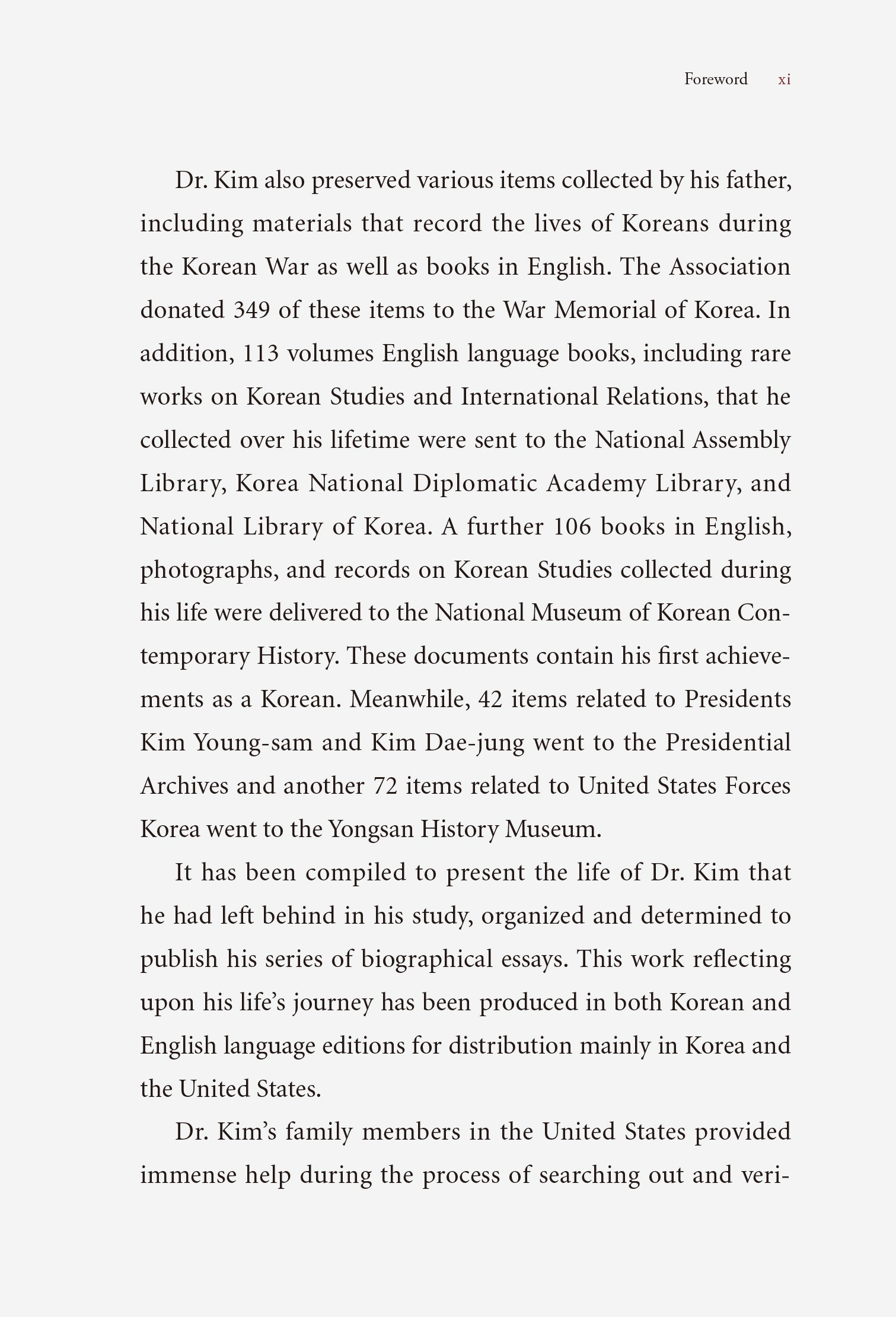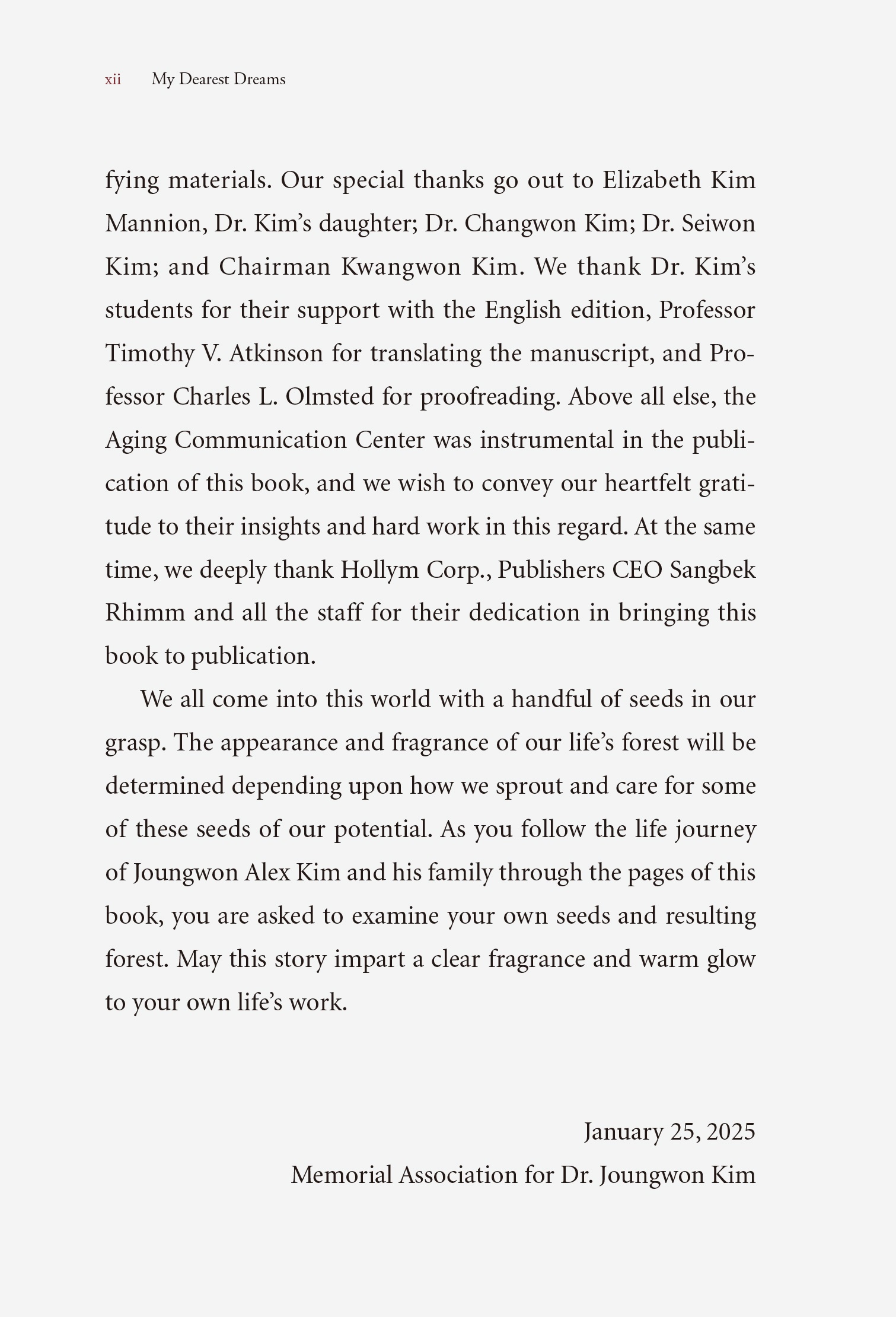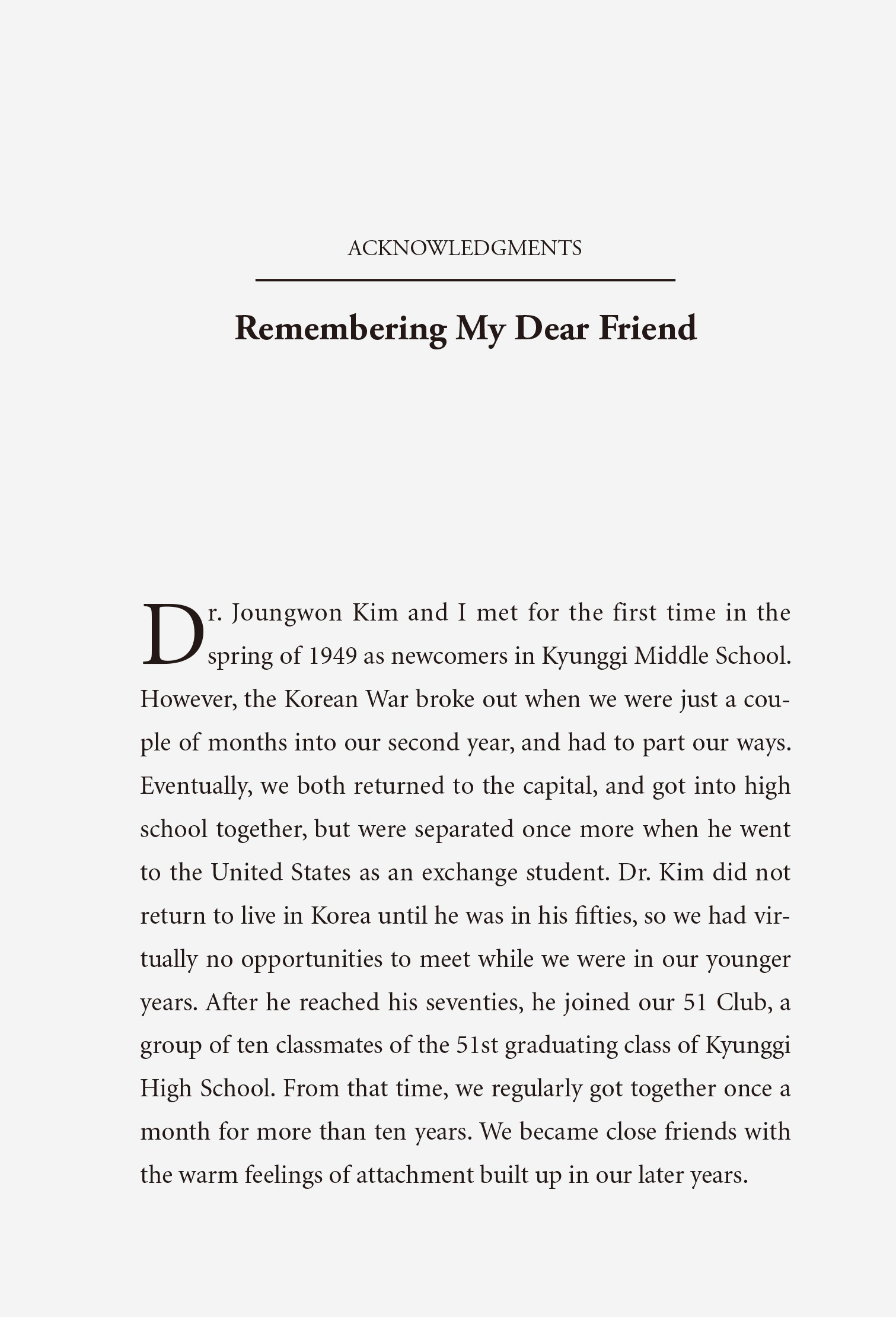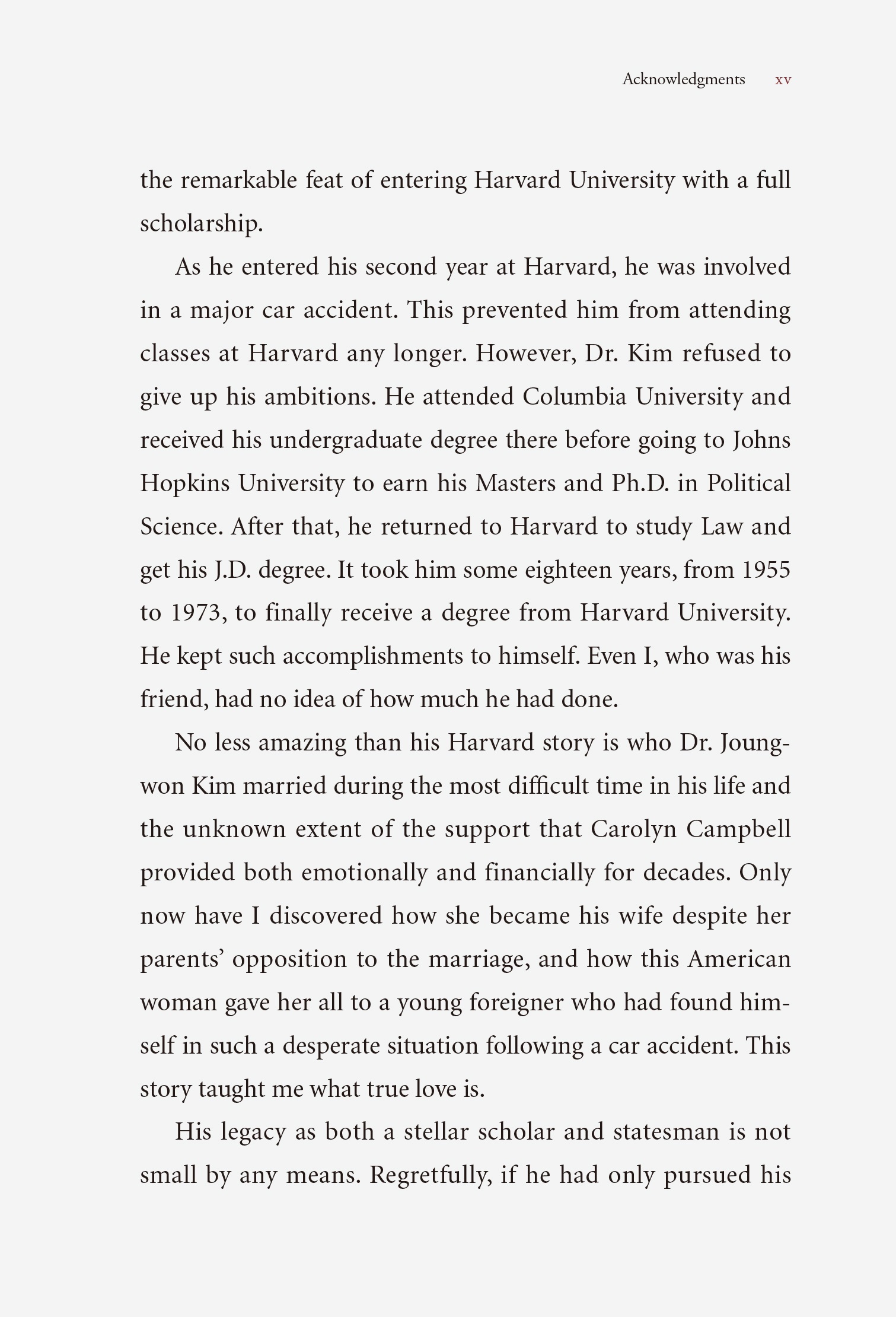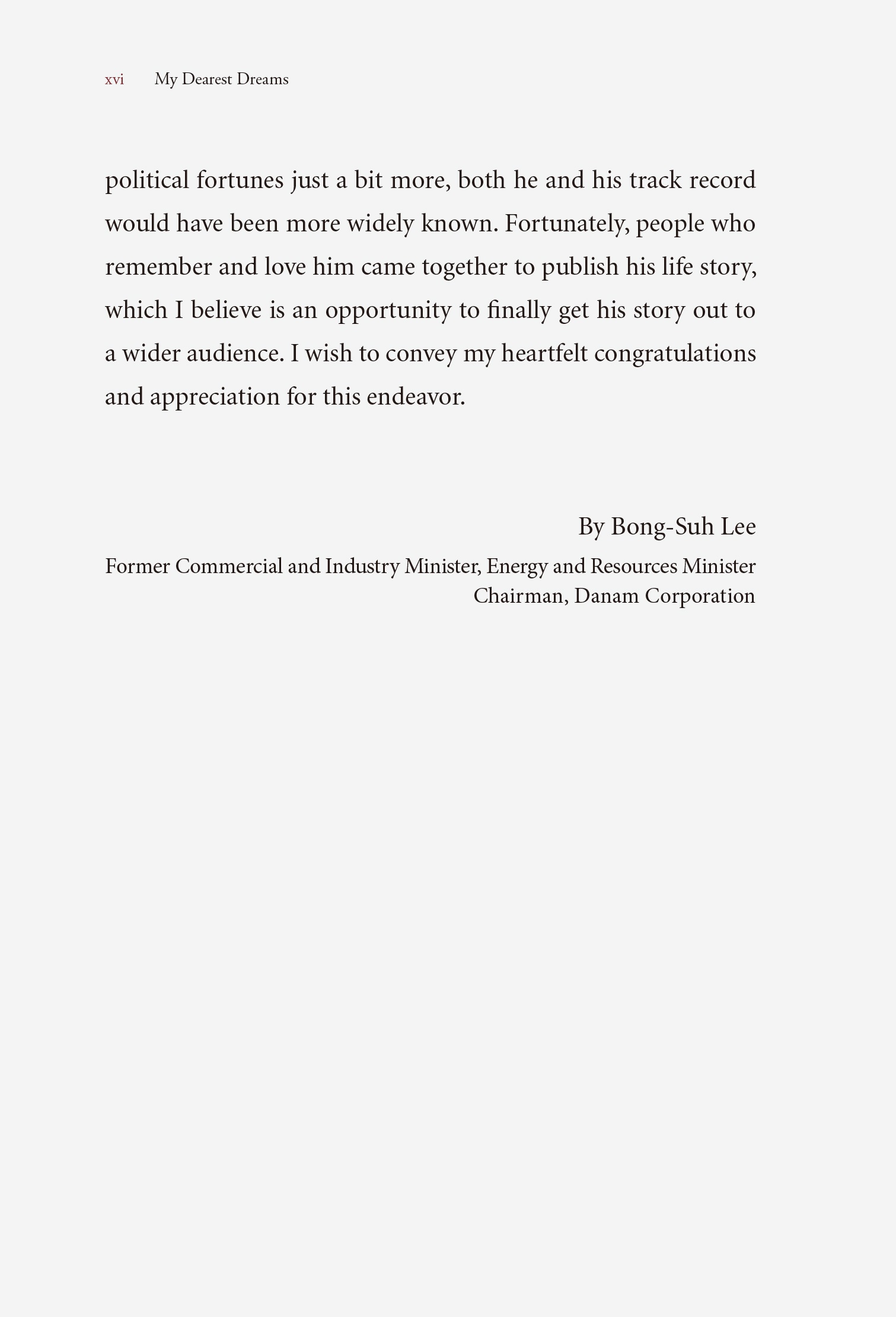My Dearest Dreams
$32.50
On the occasion of the 75th anniversary of the Korean War, another inspiring story that sprouted in the midst of the war was published as a book. Joungwon Kim’s journey began when he encountered war correspondent Bill Boss from Canada, who opened his eyes to the world beyond Korea. With just $300, he embarked on his studies in the United States, ultimately earning degrees from Columbia University, Johns Hopkins SAIS, and Harvard Law School. This book vividly chronicles his encounters with key figures in academia, diplomacy, and law, painting a compelling picture of the times. Compiled posthumously by the Memorial Association for Dr. Joungwon Kim in collaboration with the Aging Communication Center, this book is available in both Korean and English, with the English translation undertaken by his former student, Professor Timothy Atkinson of Seoul Foreign Language Graduate School, and reviewed by Charles Olmsted, former professor at Gimcheon University.
A Trailblazing Life of “Firsts”
Joungwon Kim’s life was marked by a series of historic firsts: the first Korean student at Phillips Exeter Academy (p.40), the first Korean student body president at Harvard University (p.64), the first Korean author published in the world-renowned journal Foreign Affairs (p.109), the key figure behind the introduction of Korean politicians Kim Young-sam and Kim Dae-jung to Washington’s political circles (pp.29, 115), and the first Korean lawyer to join a major Wall Street law firm (p.129). His journey across academia, diplomacy, and law offers a gripping narrative of ambition and service.
A True Noblesse Oblige: A Legacy of Giving
Inspired by his grandfather, who donated his entire fortune to local schools, Joungwon Kim lived a life of generosity. While at Harvard, he refused financial support from his parents, arguing that his tuition—over 20 times Korea’s per capita GDP—should instead be used to fund scholarships for 50 to 100 other Korean students (p.62). Despite earning two doctorate degrees from the most prestigious U.S. institutions, he relied primarily on scholarships and considered it his duty to repay this debt to society. Without seeking publicity, he quietly dedicated himself to philanthropy throughout his life.
What We Leave Behind and How We Are Remembered
Joungwon Kim’s final chapter was guided by the Aging Communication Center’s Legacy Project, which preserves personal histories as cultural heritage. This initiative donates significant life artifacts to museums and libraries, ensuring that individual legacies contribute to the collective good. His personal belongings—90 boxes of household items—were donated to seven charitable organizations, while 682 books and historical records were gifted to institutions including the War Memorial of Korea, the National Museum of Korean Contemporary History, the Presidential Archives, the Yongsan History Museum, the National Assembly Library, the Korea National Diplomatic Academy Library, and the National Library of Korea. Proceeds from book sales will be allocated to scholarship funds.
A Life Devoted to Korea and Democracy
Throughout his student years, Joungwon Kim displayed unwavering patriotism, hanging a large Korean flag (Taegeukgi) in his dormitory to remind himself of his homeland and family (p.48). Representing the United States at the World Festival of Youth and Students in Helsinki, he carried the Taegeukgi to promote Korea on the international stage (p.93). During Korea’s pro-democracy movement of the 1980s, his book Divided Korea became essential reading for social science students (p.164). Upon returning to Korea in 1987, he played a pivotal role in communicating the realities of Korean politics to the international community, effectively serving as the foreign press spokesperson for the United Democratic Movement (p.140).

